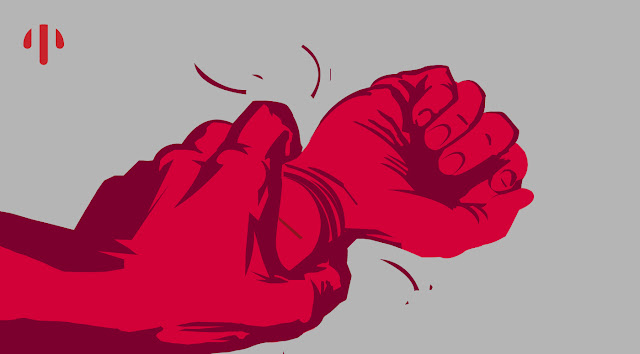Marital Rape is against married women rights in India
Spousal rape, also known as marital rape is a Penal Offence under Section 375 and 376 of Indian penal court.
According to the legal laws for women in India, non-consensual intercourse with your partner is marital rape.
“Non-consensual intercourse leads to human rights violation. It is the gravest form of domestic violence.”
In Section 375 of Indian Penal Code, the Offense is defined as: “A man is said to commit ‘rape’ if he penetrates his penis to any extent. Or applies his mouth into the vagina, urethra or anus of a woman or makes her do so with himself or any other person.” Under section 375 Spousal or Marital Rape is against the married women rights in India and it is punishable.It states that the offence is liable only if the wife is less than 12 years. However, for the wife between 12-16 years of age, an offence is committed but with less serious punishment. Once the age is above 16 years, there is no legal protection given to the wife, in direct contravention of human rights regulations. For women under 16 years, it is essential to know their safety once they are aware of rights in spousal rape.
Does Marital Rape exist?
Yes, despite the fervent denial of government. Marital rape has been disintegrating the women’s rights in India built by social contract, love, financial deals and religion.In current times, 10-14% of married women face marital rape. It mostly happens due to unawareness of their rights in spousal rape. On clinical test, every 1 woman in 3 or 1 woman in 2 suffers from marital rape. Sexual assault by spouse forms 25% of the total rapes. Women who tried to flee becomes the prime target. The Criminal charges on marital rape are prompted by acts of genital contact with mouth, anus, vagina; or insertion of objects forcibly without consent. Such acts are conscious acts of bullying, A show-off of men’s superiority over women.
Another trend that is changing the perspective for marital rape is the global conversion of the marriage as an institution. Its a transformation from reproduction to closeness as the main objective of marriage. And shows a huge shift in heterosexual relationships.
Marital rape is Serious
Like other forms of sexual violence, spousal rape may bring many physical and emotional consequences such as:- What Physical effects include: Injuries to the vaginal and anal areas, lacerations, soreness, bruising, torn muscles, fatigue, and vomiting
- The Frequently assaulted and raped women suffer from broken bones, black eyes, bloody noses and knife wounds
- Gynaecological effects include vaginal stretching, pelvic inflammation, unwanted pregnancies, miscarriages, stillbirths, bladder infections, sexually transmitted diseases, HIV, and infertility
- Short-term psychological effects include PTSD, anxiety, shock, intense fear, depression and suicidal idealization
- Long-term psychological effects include disordered sleep, disordered eating, depression, intimacy problems, negative self-images, and sexual dysfunction.
What does Media say?
A recent debate on a renowned news channel, consisting of 3 women panellists. It said Indian society is not ready to handle the outcome of criminalizing marital rape. Similar to those who defend Triple Talaq, are making our country fall under the category of 36 countries that could not criminalize marital rape and could not support married women’s rights in India.How other countries are dealing with marital rape?
Poland in 1932 was first to have a law explicitly making a criminal offence. Since 1980 many common law countries have developed their legal system and have explicitly abolished marital rape in direct or indirect ways. These include South Africa, Canada, New Zealand, the US, etc.What do our leaders say?
The Minister for Women & Child Development, Maneka Gandhi, supported the possibility of making marital rape a criminal offence by making this statement: “It is considered that the concept of marital rape as understood internationally cannot be suitably applied in the Indian context. Due to various factors like level of education, illiteracy, poverty, myriad social customs & values, religious beliefs, social mentalities. As they treat marriage as a sacred institutional practice.”An example of jurisdiction considering marital rape as a criminal offence is one of India’s neighbouring country Bhutan. Bhutan defines ‘Marital Rape’ under Article 199 as: “A defendant shall be guilty of marital rape when forcefully engaged in sexual intercourse with one’s own spouse without consent.” Whereas Section 375 of the Indian Penal Code (IPC) considers Marital Rape when the wife is below 16 years of age. It is not considered a crime for the wife of more than 16 years of age.
As a result, Marital Rape victims have to consider an alternative route of the Protection of Women from Domestic Violence Act 2005 (PWDVA). This act outlaws Marital Rape and supports the victims while standing for the married women’s rights in India. Although the remedy is provided via civil rights for the offence. To put an end to the misuse of this law, the UN Women Association suggested the abolition of settling issues with paying price to the wife for the perpetrator of domestic violence, including spousal rape. Paying any prices cannot be a practice in defence to a domestic violence charge.
People who can be an angel for those suffering from Marital rape
NGOs and other voluntary organizations come with solutions to help victims overcome such situations. Majlis and Swaadhar in Mumbai, Sneha in Chennai, Vimochana in Bangalore are working on different women issues arising from domestic abuse. They are helping a lot of sufferers. Raising voices for the married women’s rights in India and especially standing for the rights in spousal rape.A women’s counselling centre named Anweshi in Kozhikode provides meditation, resources, and counselling for women. It helps them recover from the dilemma and to give a new start.
These bodies have their contact details and registered offices with websites for online presence where help seekers can approach.
Talking about men, there are a few NGOs like SWAM (Social Welfare Association for Men) that work for the welfare of men. Looking at the rising issues in fraud complaints, we need to have some more of such organizations.
What can you do in an emergency?
How to fight for rights in spousal rape?Go to a safe place, for example, the nearest hospital, police precinct, or someone’s home. Then immediately call for police protection and assistance as they are always ready to deal with domestic violence situations.
If the help doesn’t arrive on time, one can also call the women’s helpline number 1091 to help strengthen legal laws for women in India and to address issues fairly and transparently.
Take the next step, visit the local hospital emergency room for immediate medical care to diagnose for injuries. Also to prevent infections and pregnancy and consult with the experts for the collection of evidence to take action against rape assault.
In such situations, avoid urination, showering, combing or changing clothes before going to the hospital. Taking these precautions help collect evidence and stand up for legal laws for women in India.
As a long-term remedy supporting educational and prevention programs on local, state and national levels could be helpful. Since every woman must know her rights in spousal rape it is an action to strengthen married women rights in India.
Let’s be responsible. Let our daughters and daughters-in-law stand up for their rights against everything unjust.




Comments
Post a Comment